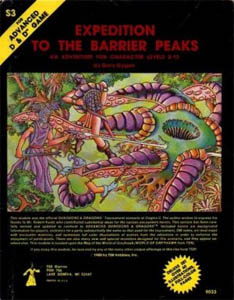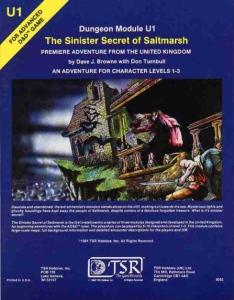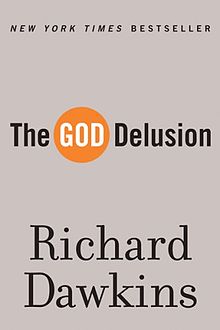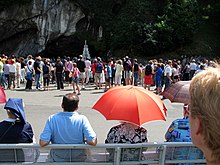
Pool of Radiance is a role-playing video game developed and published by Strategic Simulations, Inc (SSI) in 1988. It was the first adaptation of TSR's Advanced Dungeons & Dragons (AD&D) fantasy role-playing game for home computers, becoming the first episode in a four-part series of D&D computer adventure games. The other games in the "Gold Box" series used the game engine pioneered in Pool of Radiance, as did later D&D titles such as the Neverwinter Nights online game. Pool of Radiance takes place in the Forgotten Realms fantasy setting, with the action centered in and around the port city of Phlan.
Dragonlance is a shared universe created by Laura and Tracy Hickman, and expanded by Tracy Hickman and Margaret Weis under the direction of TSR, Inc. into a series of fantasy novels. The Hickmans conceived Dragonlance while driving in their car on the way to TSR for a job interview. Tracy Hickman met his future writing partner Margaret Weis at TSR, and they gathered a group of associates to play the Dungeons & Dragons role-playing game. The adventures during that game inspired a series of gaming modules, a series of novels, licensed products such as board games, and lead miniature figures.
An adventure is an exciting experience that is typically bold, sometimes risky, undertaking.

The Temple of Elemental Evil is an adventure module for the fantasy role-playing game Dungeons & Dragons, set in the game's World of Greyhawk campaign setting. The module was published by TSR, Inc. in 1985 for the first edition Advanced Dungeons & Dragons rules. It was written by Gary Gygax and Frank Mentzer, and is an expansion of an earlier Gygax module, The Village of Hommlet. The Temple of Elemental Evil is also the title of a related 2001 Thomas M. Reid novel and an Atari computer game.

Expedition to the Barrier Peaks is a 1980 adventure module for the Advanced Dungeons & Dragons role-playing game written by Gary Gygax. While Dungeons & Dragons (D&D) is typically a fantasy game, the adventure includes elements of science fiction, and thus belongs to the science fantasy genre. It takes place on a downed spaceship; the ship's crew has died of an unspecified disease, but functioning robots and strange creatures still inhabit the ship. The player characters fight monsters and robots, and gather the futuristic weapons and colored access cards that are necessary for advancing the story.

Dungeons & Dragons is an American animated television series based on TSR's Dungeons & Dragons role-playing game. It is a co-production of Marvel Productions and TSR, with the Japanese Toei Animation. It ran on CBS from 1983 through 1985 for three seasons, for a total of twenty-seven episodes.
Wizard, the wizard, or wizards may refer to:
A demon is a malevolent supernatural being in religion, occultism, mythology, folklore, and fiction.

Vampires are frequently represented in popular culture across various forms of media, including appearances in ballet, films, literature, music, opera, theatre, paintings, and video games.

The Forgotten Temple of Tharizdun is an adventure module for the Dungeons & Dragons (D&D) role-playing game, for use in the World of Greyhawk campaign setting. The module was published by TSR, Inc. in 1982 for the first edition Advanced Dungeons & Dragons rules.
Spectre, specter or the spectre may refer to:
The Dungeons & Dragons (D&D) fantasy role-playing game has been adapted into many related products, including magazines, films and video games.

The Sinister Secret of Saltmarsh is a module for the Advanced Dungeons & Dragons (AD&D) roleplaying game, written by Dave J. Browne with Don Turnbull. The module details a mysterious abandoned mansion at the edge of a town called Saltmarsh, and the secrets contained therein. The adventure is set in the World of Greyhawk campaign setting. The Sinister Secret of Saltmarsh received positive reviews from critics.
The role-playing game Dungeons & Dragons (D&D), which receives significant attention in the media and in popular culture, has been the subject of numerous controversies. The game sometimes received unfavorable coverage, especially during its early years in the early 1980s. Because the term D&D may be mistakenly used to refer to all types of role-playing games, some controversies regarding D&D mistakenly pertain to role-playing games in general, or to the literary genre of fantasy. Some controversies concern the game and its alleged impact on those who play it, while others concern business issues at the game's original publisher, TSR. The game is now owned by Wizards of the Coast.
Gehenna is a valley in Jerusalem, and an analogue of Hell or Lake of Fire in Jewish and Christian tradition.
Dungeons & Dragons (D&D) is a fantasy role-playing game first published in 1974. As the popularity of the game grew throughout the late-1970s and 1980s, it became referenced in popular culture more frequently. The complement of games, films and cultural references based on Dungeons & Dragons or similar fantasies, characters, and adventures became ubiquitous after the end of the 1970s.
A root is the part of a plant, generally underground, that anchors the plant body, and absorbs and stores water and nutrients.

Dungeons & Dragons is an action-adventure fantasy film series based on the role-playing game of the same name currently owned by Wizards of the Coast. The original trilogy consisted of a theatrical film, a made-for-TV second installment, and a direct-to-video third installment.









